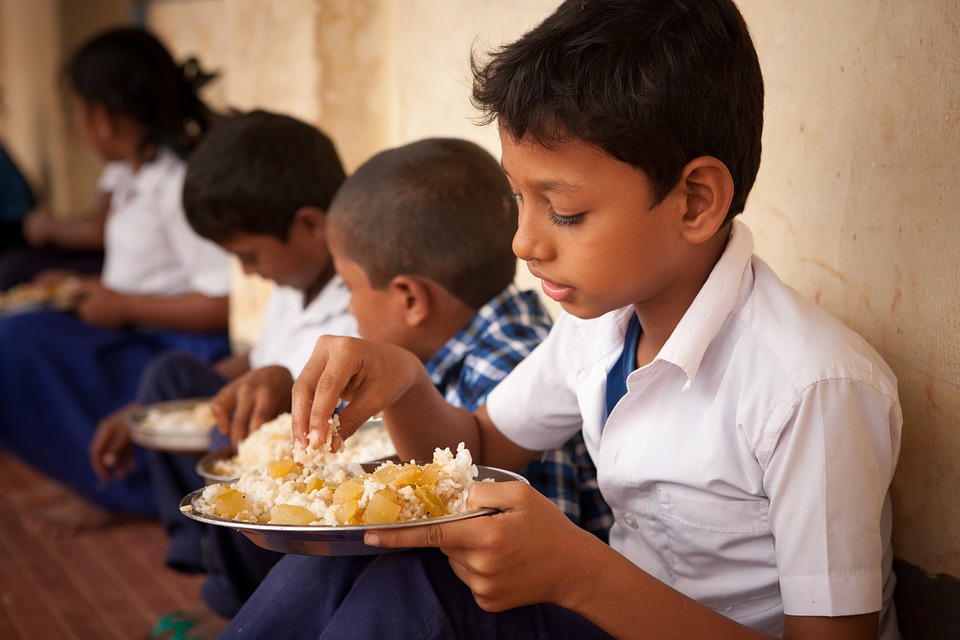The mid-day meal program has been one of the most celebrated initiatives by the government in India. The program that provides mid-day meals to schoolchildren has been widely hailed for their multiple benefits such as an increase in enrolment and attendance particularly of children from vulnerable groups, contribution in reducing classroom hunger and improving learning outcomes.
The provision of cooked food in government schools was universalised following a Supreme Court order in the 2001 Right to Food case. However, the mid-day meal scheme had started in Tamil Nadu much earlier.
At present, all Indian states provide hot cooked meals to children up to Class 8, for which the Union government provides food grains through the Food Corporation of India and the cost for other ingredients and cooking is shared by the state and Union governments.
In order to ensure that the quality of the meals provided to the children is maintained, a recommendation was made by the experts to introduce eggs and milk in the meal. Considering the extent of malnutrition among children in the country, introducing animal proteins in their diets seems important in improving the nutritional content of meals.
Eggs are recommended because they are packed with nutrients and are logistically easy to handle and generally popular with children. Milk, on the other hand, is difficult to reach everywhere, and the concerns of contamination and dilution are higher.
Accepting the recommendation, a number of states have now included eggs in the menus of school meals. However, it has become a politicised issue in some states such as Madhya Pradesh, Rajasthan and Gujarat. Several groups in these states have argued that including eggs would make vegetarians uncomfortable and alternative sources of protein should be explored.
On the other side, many food rights groups have been arguing that this is not a valid concern since a majority of the children are indeed non-vegetarians, especially those belonging to Dalit and Adivasi communities, where malnutrition is the highest. They have also argued that there is no compulsion for children to eat the eggs if they are served in school. They can always choose not to eat them, and an alternative for that should be made available for these children.
Joining in the argument of freedom to food, Akshaya Patra, a Bengaluru-based non-profit, has stated it will not include onions and garlic in meals they serve to children. Akshay Patra, who has joined hands with the government to implement the mid-day meals scheme in certain states, has argued that being a religious organisation, it wants to serve only satvik food. The non-profit had similarly refused to give eggs a few years ago in Karnataka arguing that they first offered the food they cooked to god before distributing it in schools.
The mid-day meal scheme is funded by the government, and religious concerns of this nature cannot be allowed to take over a publicly-funded and implemented the scheme. The food served in the mid-day meal scheme also needs to consider the local tastes and preferences. In many parts of the country, children are used to consuming onion and garlic in their meals and do not find the food tasty when these are removed from the meal — their choices must also be kept in mind.
The applaud worthy scheme needs to come out of its political and religious shackles to do justice to the health and well being of children. It needs to impart the freedom that represents our country in allowing the children to choose the food they eat and the religion they follow.
Thank you for reading. Please drop a line and help us do better.
Regards,
The CSR Journal Team


